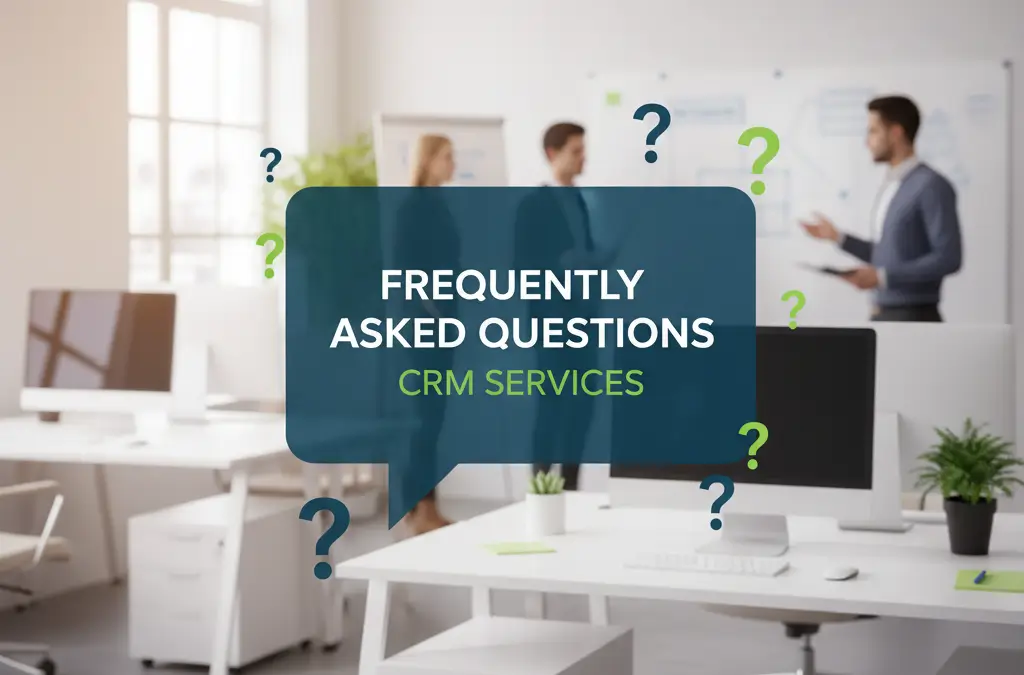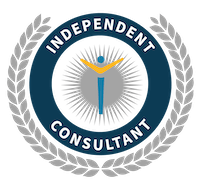Frequently Asked Questions About Our CRM Services
Choosing a new CRM is a big decision that affects your entire organization. It also raises a lot of questions. Below, we’ve answered the ones we hear most often from leaders considering our CRM planning, strategy, and selection services. If you don’t see your question here, we’d be glad to talk it through with you directly.

Why should we hire a firm just to help pick a CRM?
We don’t just help you ‘pick a system.’ Our work is CRM planning, strategy, and selection. That means clarifying business goals, mapping processes, gathering user requirements, and ensuring the technology supports how you want to work. Selection is the outcome, but planning and strategy are what make it successful.
How much does your service cost?
Engagements typically start around $15,000 and range up to $25,000 or more, depending on scope. Costs vary based on the number of discovery interviews, the complexity of existing systems, and the depth of analysis required. This investment is small compared to the long-term costs of choosing the wrong CRM or skipping critical requirements.
What deliverables will we receive?
We won’t disappear and return with a report. Instead, we work side by side with your team throughout discovery, demonstrations, and deliberations. Together, we co-create a clear path to the right CRM. Along the way, we’ll help you build:
- A CRM strategy statement aligned to your business goals
- Stakeholder and user requirements gathered through interviews and workshops
- Process maps and user stories that show how CRM should support your teams
- A customized CRM scorecard and vendor short list
- Tailored Demonstrations, where vendors present your data and processes—not canned demos
- A solution fitness map and other decision-making tools
- Oversight Advisory, where we continue supporting you during implementation to ensure alignment and mitigate risks.
How long does the planning and selection process take?
Most projects run for 8 to 12 weeks, depending on their complexity and your team’s availability. We set clear milestones and adapt the pace to fit your organization. Because the work includes strategy and planning, you’ll come out of the process not only with a CRM decision, but with a roadmap for implementation and adoption.
Can you help with implementation too?
We don’t perform hands-on implementation. That’s the vendor or integrator’s role. What we do provide is independent advisory oversight to protect your interests. We help keep deliverables aligned with requirements, flag risks early, support governance, and act as a sounding board for your project leaders. Think of us as your advocate throughout the implementation process.
How do I know you won’t steer us toward one vendor?
Our role is to advocate for your business, not a software provider. We are completely vendor-neutral—we don’t accept incentives, commissions, or implementation work tied to specific platforms. Our recommendations come from your strategy, requirements, and goals. That way, you can trust the decision is made in your best interest, not ours.
What results have you achieved for other clients?
Our clients benefit from:
- Stronger alignment between business goals and technology
- Fewer surprises during rollout
- Higher user adoption because requirements are captured upfront
- Better long-term ROI by avoiding misaligned systems
We have numerous testimonials from past clients about how our approach helped them make informed & confident decisions and set their CRM up for success.
What if we’ve already narrowed it down to two CRMs?
That’s where our Tailored Demonstration approach is especially valuable. Most vendors present generic demos that look polished but don’t reflect your reality. We prepare vendors with your data, processes, and terminology so your team sees a true ‘day in the life’ demonstration. This makes the differences clear and supports confident decision-making.
Who should be involved in the process?
At a minimum, Sales, Marketing, Service, IT, and Executive leadership should be engaged. Depending on your business type, we often recommend including Operations, Finance, and Product Management as well. This ensures that essential input is captured across functions and helps create a pride of authorship, which is critical for adoption.
How do you handle integration with our current systems?
We map your technology environment and identify dependencies early. This planning ensures your selected CRM can integrate smoothly with your ERP, marketing platforms, and other systems—avoiding costly surprises later.
Don’t risk the wrong CRM slowing down your business
Book a call today and see how our planning and strategy process helps you
choose the right platform with confidence.

